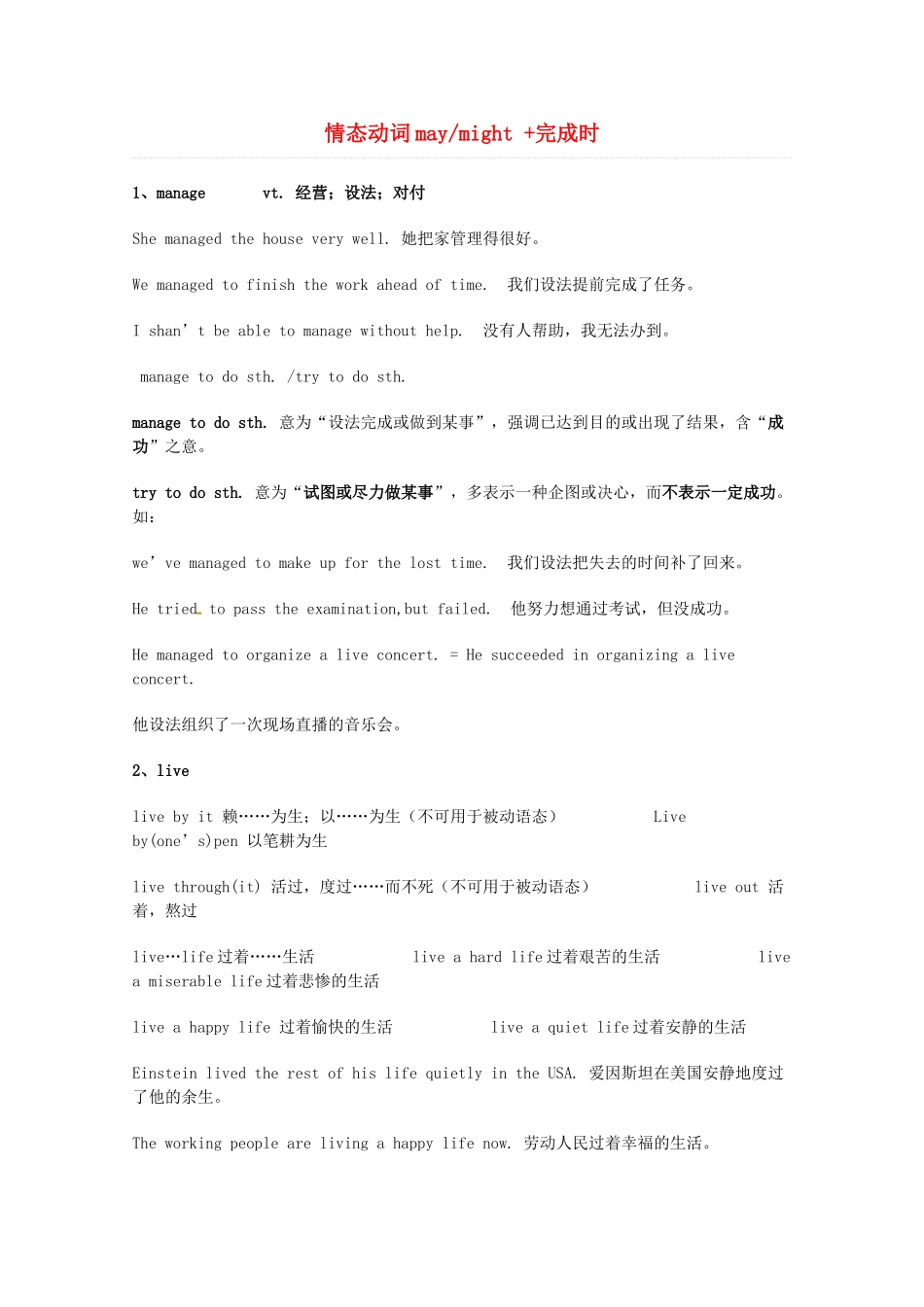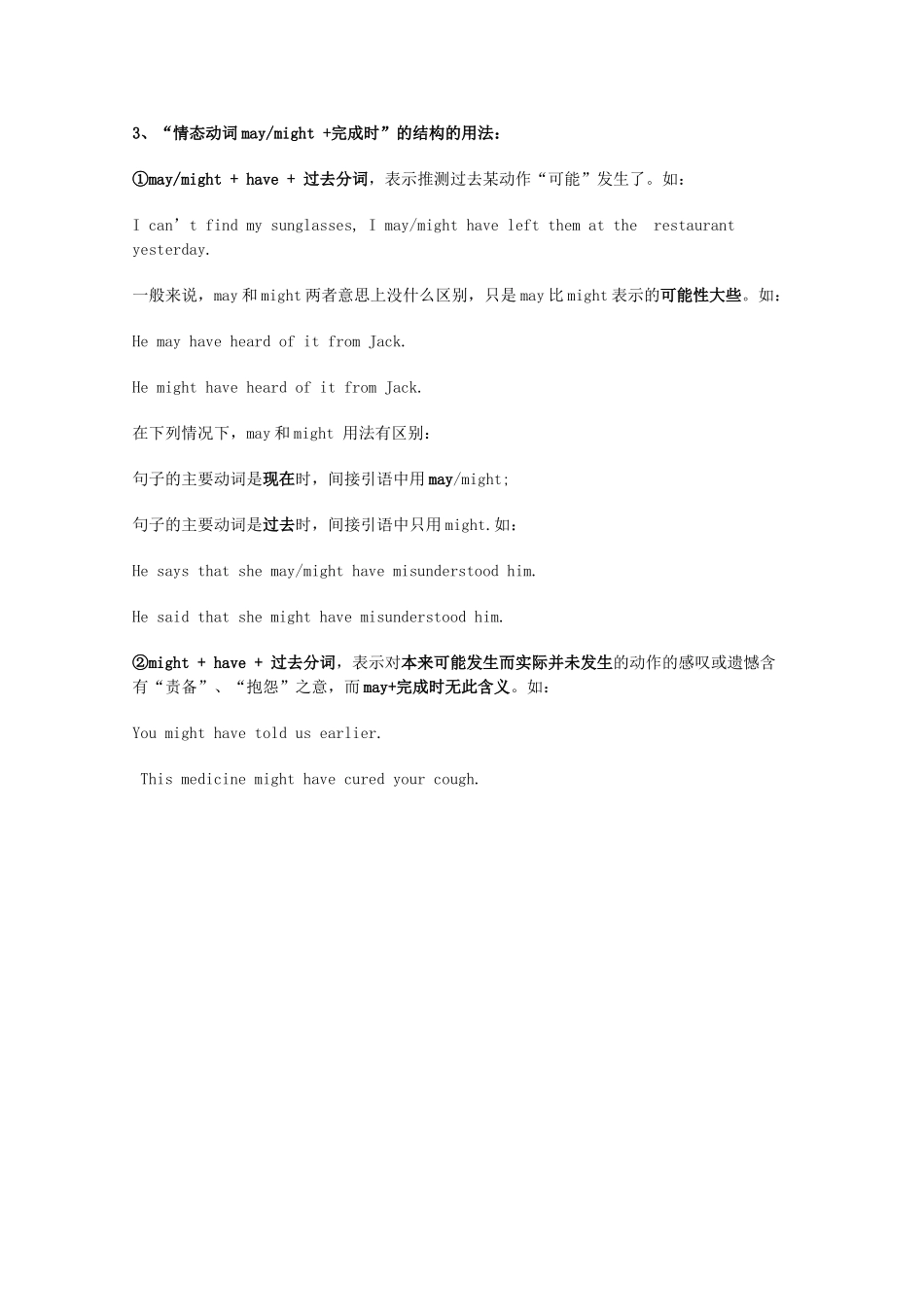情态动词 may/might +完成时1、manage vt. 经营;设法;对付She managed the house very well. 她把家管理得很好。We managed to finish the work ahead of time. 我们设法提前完成了任务。I shan’t be able to manage without help. 没有人帮助,我无法办到。 manage to do sth. /try to do sth.manage to do sth. 意为“设法完成或做到某事”,强调已达到目的或出现了结果,含“成功”之意。try to do sth. 意为“试图或尽力做某事”,多表示一种企图或决心,而不表示一定成功。如:we’ve managed to make up for the lost time. 我们设法把失去的时间补了回来。He tried to pass the examination,but failed. 他努力想通过考试,但没成功。He managed to organize a live concert. = He succeeded in organizing a live concert.他设法组织了一次现场直播的音乐会。2、live live by it 赖……为生;以……为生(不可用于被动语态) Live by(one’s)pen 以笔耕为生live through(it) 活过,度过……而不死(不可用于被动语态) live out 活着,熬过live…life 过着……生活 live a hard life 过着艰苦的生活 live a miserable life 过着悲惨的生活live a happy life 过着愉快的生活 live a quiet life 过着安静的生活Einstein lived the rest of his life quietly in the USA. 爱因斯坦在美国安静地度过了他的余生。 The working people are living a happy life now. 劳动人民过着幸福的生活。3、“情态动词 may/might +完成时”的结构的用法:①may/might + have + 过去分词,表示推测过去某动作“可能”发生了。如:I can’t find my sunglasses, I may/might have left them at the restaurant yesterday.一般来说,may 和 might 两者意思上没什么区别,只是 may 比 might 表示的可能性大些。如:He may have heard of it from Jack.He might have heard of it from Jack.在下列情况下,may 和 might 用法有区别:句子的主要动词是现在时,间接引语中用 may/might;句子的主要动词是过去时,间接引语中只用 might.如:He says that she may/might have misunderstood him.He said that she might have misunderstood him.②might + have + 过去分词,表示对本来可能发生而实际并未发生的动作的感叹或遗憾含有“责备”、“抱怨”之意,而 may+完成时无此含义。如:You might have told us earlier. This medicine might have cured your cough.

